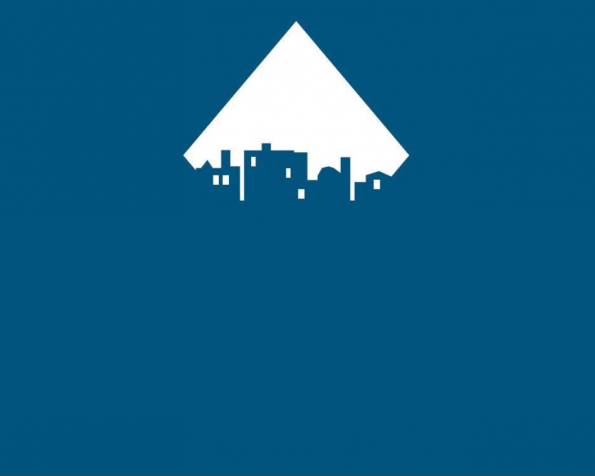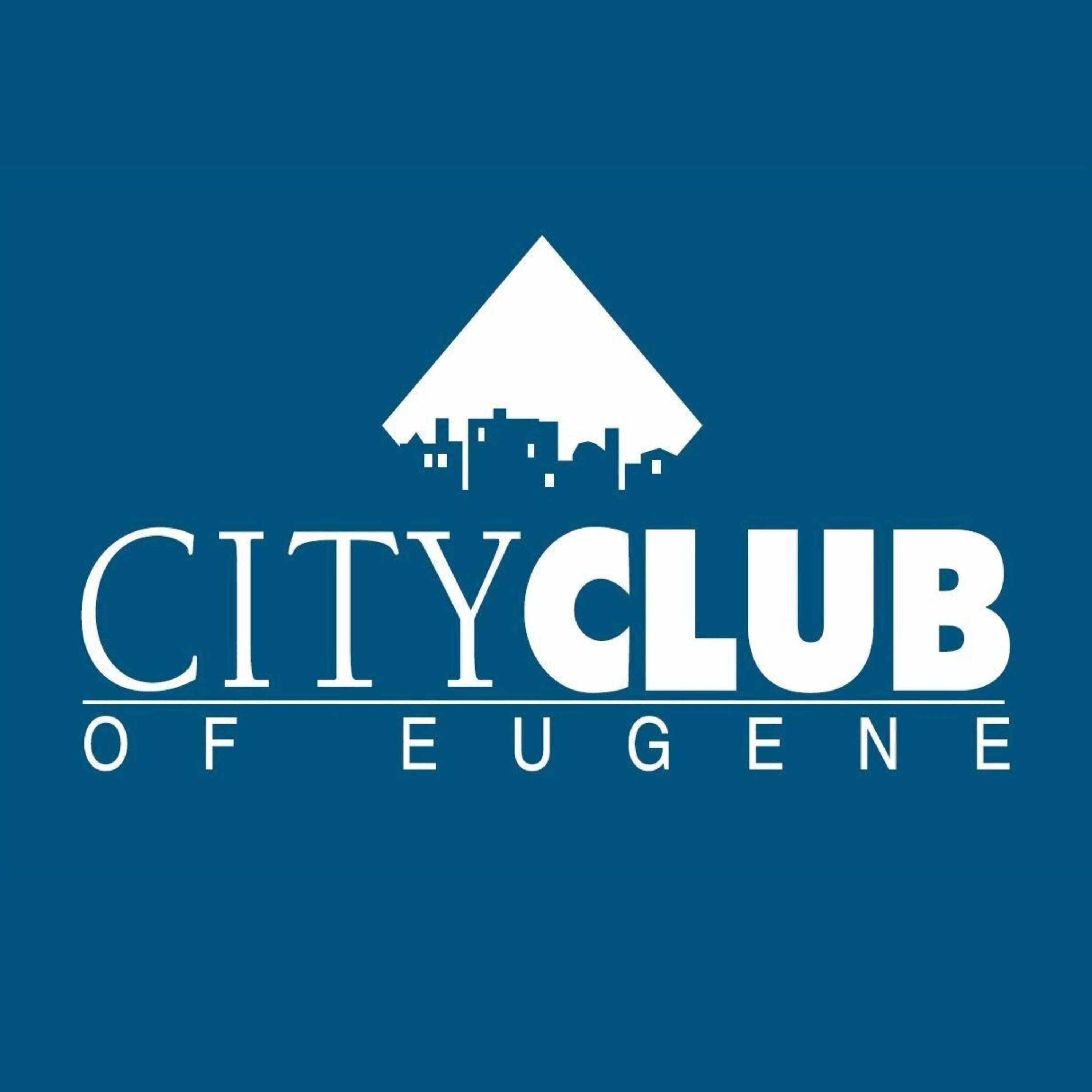
7.2K
Downloads
181
Episodes
Our podcast aims to inform our residents and the larger community on varying subjects. City Club of Eugene Oregon provides this podcast to build an informed public by providing facts and opinions on diverse civic matters. We’re also on Facebook, Instagram, YouTube and http://www.cityclubofeugene.org.
Our podcast aims to inform our residents and the larger community on varying subjects. City Club of Eugene Oregon provides this podcast to build an informed public by providing facts and opinions on diverse civic matters. We’re also on Facebook, Instagram, YouTube and http://www.cityclubofeugene.org.
Episodes
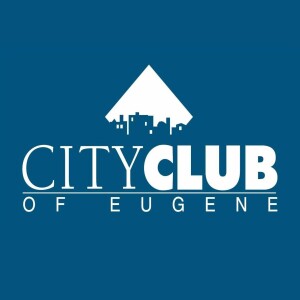
Wednesday Mar 31, 2021
Oregon's Addiction Crisis
Wednesday Mar 31, 2021
Wednesday Mar 31, 2021
Oregon has an substance addiction problem: #1 for use of marijuana and misuse of pain relievers, #2 in use of methamphetamines, #4 in the use of cocaine and alcohol. Oregon ranks fourth in substance abuse disorders. Our youth are #2 nationally for the use of pot. What can be done to respond to the need for treatment?
We'll hear from Tiffany Brown, PhD and senior lecturer and clinical director at the University of Oregon's Couples and Family Therapy graduate program; Mike Marshall, co-founder and director of Oregon Recovers and in recovery himself; Teri Morgan, CADC II, program coordinator for Springfield Treatment Center and in recovery herself; and Reginald Richardson, Sr., PhD, executive director of the Oregon Alcohol and Drug Policy Commission.
View this episode on YouTube or on the City Club of Eugene Facebook page.
(This program aired on March 19, 2021)

Sunday Mar 14, 2021
Attack on the U.S. Capitol
Sunday Mar 14, 2021
Sunday Mar 14, 2021
The Jan. 6, 2021 invasion of the U.S. Capitol made it clear that extremism is part of our national politics. What does this mean for the republic and, in particular, the Republican Party?
This City Club of Eugene podcast episode features three experts to help us understand the motivations of the far right and what the movement means for our political future. Our speakers include investigative journalist David Neiwert; University of Oregon Professor Emerita Priscilla Southworth, an expert in political science; and University of Oregon Professor Peter Walker, who observed the Malheur Wildlife Refuge rebellion and wrote Sagebrush Collaboration about that occupation.
View this episode on YouTube or on the City Club of Eugene Facebook page.
(This program aired on March 12, 2021)

Tuesday Mar 02, 2021
Designer Babies
Tuesday Mar 02, 2021
Tuesday Mar 02, 2021
If we use CRISPR technology to improve, modify, delete or add DNA to a fetus, have we benefited or harmed our species? In this episode, Dr. Francoise Baylis, a bioethicist, walks us through the safety, efficacy and ethics we should consider when creating designer babies.
Baylis is the 2021 Chair of the Wayne L. Morse Center for Law and Politics at the University of Oregon.
Watch this episode on YouTube or the City Club of Eugene Facebook page.
(This program was broadcast on Feb. 26, 2021)

Tuesday Feb 23, 2021
Eviction: Losing House and Home in the Pandemic
Tuesday Feb 23, 2021
Tuesday Feb 23, 2021
An eviction is recognized as a property owner's nuclear option in attempting to solve owner-tenant disputes. While behavior may prompt delivery of an eviction notice, the COVID-19 pandemic has highlighted renters falling behind on paying rent.
In Lane County, one in three renters is paying more than half of their income for rent; in Oregon, one-quarter of renters are severely burdened by the cost of housing. More than half of BIPOC Oregonians owe back rent. During the pandemic, the Oregon Legislature imposed a moratorium on evictions, but it is set to expire.
House Bill 4401 provides assistance for renters and owners, and it extends the pandemic moratorium on evictions. For a look at evictions and the bill, City Club of Eugene invited three speakers: Rep. Julie Fahey, chair of the House Committee on Housing; Alison McIntosh, policy and communications director for Neighborhood Partnerships; and Jason Miller, legislative director of the Oregon Rental Housing Association.
Watch this program on City Club of Eugene's YouTube channel.
(This program was presented on Friday, Feb. 19, 2021)
This episode is the third of three focused on housing.

Sunday Feb 14, 2021
Affordable Housing
Sunday Feb 14, 2021
Sunday Feb 14, 2021
"Do the math, create the path."
The speakers in this episode discuss the barriers to affordable housing and some of the work-arounds that will help people achieve the American dream of home ownership. The path forward may include community land trusts, cooperative housing, limited equity cooperatives and more. The idea is to create affordability by design.
Speakers include Jeff Albanese, who works on developing affordable, shared-equity housing; Annie Fifield, Economic Strategies Manager for the City of Eugene; and Dylan Lamar, an architect focusing on sustainable and affordable in-fill housing.
Watch this program on City Club of Eugene's YouTube channel.
(This program was presented on Friday, Feb. 5, 2021)
This episode is the second of three focused on housing.

Tuesday Feb 09, 2021
Missing Middle Housing: Citizen Involvement
Tuesday Feb 09, 2021
Tuesday Feb 09, 2021
Eugene is developing its implementation of Oregon House Bill 2001, which requires "missing middle" housing in Oregon cities. Part of the planning includes a deliberative planning review panel, consisting of randomly selected residents representing all demographics.
In this presentation, City Planner Teri Harding explains the concept of missing middle housing and the way that the city is approaching it. Two participating members of the review panel, Sam and Robert, join Harding to explain the process.
More information on the history of exclusionary zoning is available on the city's website.
This episode is the first of three focused on housing.
Watch this program on City Club of Eugene's YouTube channel.
(This program was presented on Friday, Feb. 5, 2021)

Saturday Jan 30, 2021
Recovery from the Holiday Farm Fire (2 of 2)
Saturday Jan 30, 2021
Saturday Jan 30, 2021
"Without the pure and bountiful McKenzie, we are, as Barry Lopez said, 'somehow a little bit less'." (Jeannine Parisi)
It's been months since the September 2020 devastating Holiday Farm Fire along the McKenzie River east of Eugene. City Club of Eugene checked in on the progress - or the lack of it - on clean up and rebuilding.
Three speakers gave us the status of their work and visions for the area's future: Heather Buch, Lane County's commissioner serving the fire area; Tim Laue, head of McKenzie Development Corporation, which focuses on recovery; and Jeannine Parisi, community and local government liaison for Eugene Water and Electric Board, which sources its water from the McKenzie River.
Watch this program on City Club of Eugene's YouTube channel.
(This program was presented on Jan. 29, 2021; Part 1 of this topic is also available)

Friday Jan 29, 2021
Coast Economics
Friday Jan 29, 2021
Friday Jan 29, 2021
The Oregon Coast is beautiful, but many of its residents suffer economically. The region's recovery from the 2008 recession has been very slow (below, left). In addition, factors such as lower life expectancy (below, right) play a role in the coast's ability to create and sustain a healthy economy.
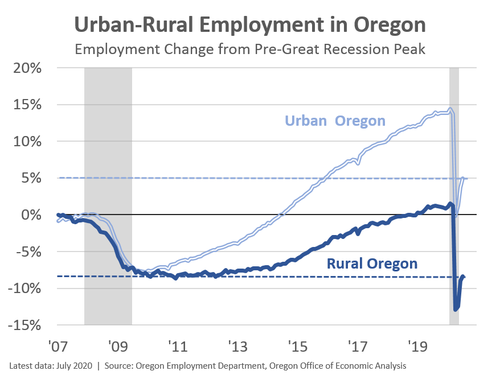
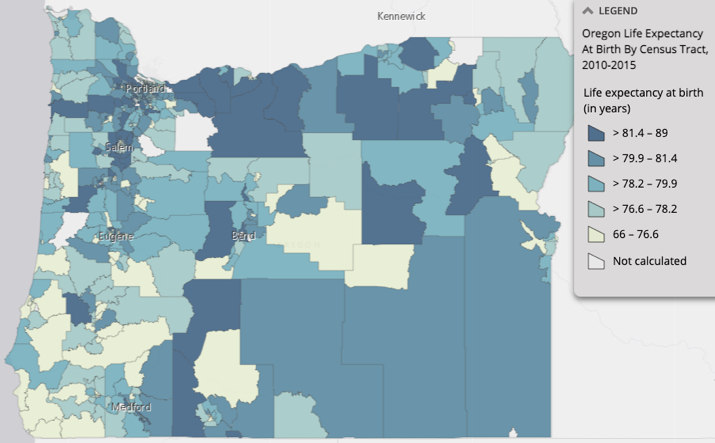
City Club of Eugene developed this program to highlight the perspectives of coastal legislative, tribal and business leaders.
Sen. Dick Anderson, former mayor of Lincoln City, says, "On the one hand…rural Oregon, including the coast, has lost a smaller share of jobs than urban Oregon since the start of the COVID-19 pandemic. On the other hand, prior to the onset of the pandemic, rural Oregon had barely regained the level of jobs prior to the Great Recession of 2007-09, continuing a troubling pattern of lagging economic growth. The effects of this geographic inequality go far beyond economics, affecting everything from life expectancy to access to health insurance.”
Bettina Hannigan, president and CEO of the Florence Area Chamber of Commerce, says, "It’s very difficult to get skilled labor here on the coast…the businesses here are struggling with skilled workforce. When we finally do get skilled workers…it’s a big burden to be able to keep their employees year-round.”
Doc Slyter is chief of the Confederated Tribes of Coos, Lower Umpqua and Siuslaw Indians. From his perspective, "It’s a process of remembering what we need and to keep on that to make sure that doesn’t go down the list, keep those projects on the top of the list and bring them up every 4-5 months so we don’t forget about them.”
Watch this program on City Club of Eugene's YouTube channel.
(This program was presented on Jan. 15, 2021)

Saturday Jan 23, 2021
Implicit Bias
Saturday Jan 23, 2021
Saturday Jan 23, 2021
What is implicit bias? How does it operate in the classroom and the courtroom? How are hiring decisions and discipline affected by implicit bias?
Erik Girvan, law professor at the University of Oregon Law School, provides a broad overview of implicit bias; Rhonda Nese, professor of education at the University of Oregon, discusses steps that teachers can take to counteract implicit bias; and Justice Adrienne Nelson, judge on the Oregon Supreme Court, discusses it from a justice perspective.
“Try to help us to make better decisions in the moment. This can include lots of things like give ourselves decision guides so we don’t just go with our guts. Because going with our gut can emphasize the impact of (our) assumptions.” (Dr. Girvan)
“When we see implicit bias come up in the treatment of students within schools, either through their interactions with their teachers or their peers, what we often see, especially in classroom behaviors and interactions is that implicit bias comes out as harsh and disproportionate discipline towards students of color, students with disabilities, students living in poverty and those struggling academically.” (Dr. Nese)
“There is a school-to-prison pipeline. And what that means is that depending on the circumstances by which you live – that doesn’t mean things that you’ve done – just by living in a certain zip code, your skin color, your gender/sexual orientation, your religious affiliation, can affect how one navigates the world.” (Justice Nelson)
(This program was presented on Jan. 8, 2021)
Watch this program on the City Club of Eugene's YouTube channel!

Thursday Dec 31, 2020
Navigating and Studying Gender Transition
Thursday Dec 31, 2020
Thursday Dec 31, 2020
Bethany Grace Howe used to be Barton Grover Howe. In this episode of the City Club of Eugene podcast, she talks about her personal experience with transitioning as well as her research on it. Since this program, Bethany has received her doctorate from the University of Oregon School of Journalism and Communication.
"Every single thing that happens, you wonder if it's a point of contention, you wonder if it's something about you."
"Sometimes transitioning people just get reduced to an identity...it just can't be news anymore that I exist."
"I think people get tired of being tokenized."
"Being transgender in the 21st century...we're the boogeyman du jour."
"The worst days...are when I feel like my community is under siege."
(This program was presented on March 15, 2019)
